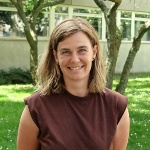Qualification program
Our PhD program offers a structured scientific qualification that consists of three components: a basic program, an in-depth qualification, and a complementary qualification. The 3-year program is tailored to each student's individual needs and includes comprehensive professional training and interdisciplinary skill development.
The obligatory basic program includes status seminars, where doctoral candidates present the current state of research. Scientific colloquia, seminars, workshops, and excursions to companies and research institutions are also integral parts of this program.
In the in-depth qualification, students participate in seminars where current research topics are presented and discussed. Additional subject-related events such as workshops or lectures are also offered, and students may have the opportunity to conduct research at foreign institutions. Qualification points can also be earned by publishing manuscripts, contributing to posters, securing patents, or giving lectures. Optionally, it is possible to obtain the S1 Genetic Engineering qualification.
The complementary qualification focuses on developing interdisciplinary competences, with various workshops available for students to select from the Graduate Academy of the University of Stuttgart (GRADUS), a central institution for promoting young academics, offers a range of qualification, information, consulting, and mentoring services that students can take advantage of. Additionally, entrepreneurship modules taught by Prof. Alexander Brem at the Institute for Entrepreneurship and Innovation Research at the University of Stuttgart are an essential part of the program. This includes lectures and interdisciplinary group work that focuses on various aspects of product development, marketing, and the creation of a business plan. The results of these group projects are presented and discussed, encouraging students to broaden their perspective beyond their research projects. The implementation of these modules as block events allows external doctoral students to participate. The GRADUS modules typically take place over one or two days, and lectures are also available online.
Examples of GRADUS modules
(Most courses are offered in English, usually for 2 days)
Academic skills
AS Roadmap towards your PhD: Techniques, tools and troubleshooting
AS Good Scientific Practice & Research Integrity
AS Handlungsleitende Maßstäbe guter wissenschaftlicher Praxis
AS Interdisciplinarity in research and the graduation process: Challenges and opportunities of cooperations across the disciplines
AS Powerful Presentations
AS Interdisciplinarity in research and the graduation process: Challenges and opportunities of cooperations across the disciplines
AS Wissenschaftliches Schreiben: Die Doktorarbeit
AS Roadmap towards your PhD: Techniques, tools and troubleshootings for scientific writing
AS Presentation Skills
AS Powerful Presentations
AS Critical Thinking for Scientists
AS Risikotechnik und Risikogesellschaft
AS Ethics of Technology
AS Ethics of Science
AS Risk-Technology and Risk-Society
AS Wissenschaftstheorie
AS Technikethik: Versprechen und Herausforderungen technlogischer Entwicklung
AS Philosophy of Science
AS Denkfallen und Paradoxien: Logisches Denken in der Wissenschaft
Management skills
MS Projektmanagement in der Wirtschaft
MS Project management for Ph.D.-Students
MS The principles of effective leadership
MS Conflict management
MS Working Successfully in an Intercultural Academic Environment
MS Unconscious Bias Awareness
MS Zeit- und Selbstmanagement
MS Stressbelastung selbst gestalten, Leistungsfähigkeit und Kreativität erhalten
MS Self-management for Ph.D.-Candidates - how to deal with research,
teaching and writing the Ph.D.-Thesis
Career skills
CS Tailor Made Job Applications
CS Effektives Selbstmarketing außerhalb der Wissenschaft
CS Die eigene Zukunft gestalten: Karriereplanung
CS Strategic career planning inside and outside of academia
CS Effektives Selbstmarketing in der Wissenschaft
CS Preparation for your Ph.D.-Defense
Contact

Antje Lohmüller
Dr. rer. nat.Koordinatorin DPP-Biotech
[Image: Universität Stuttgart]

Oliver Seifert
Dr. rer. nat.Koordinator DPP-Biotech
[Image: Universität Stuttgart]



